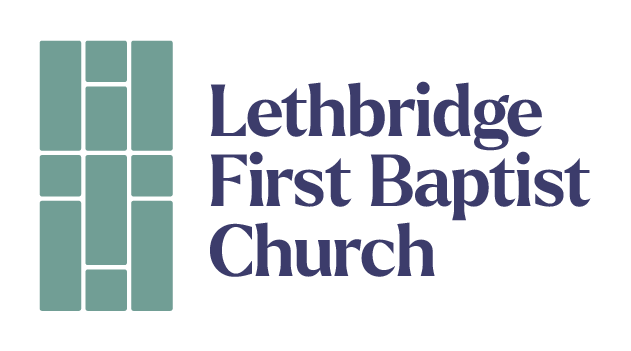April 27 – June 1, 2025

For households with children, check out:
- Spiritual Practices for Kids: Sabbath By Melanie Rainer
- Spiritual Practices for Kids: Sabbath – Minno Kids
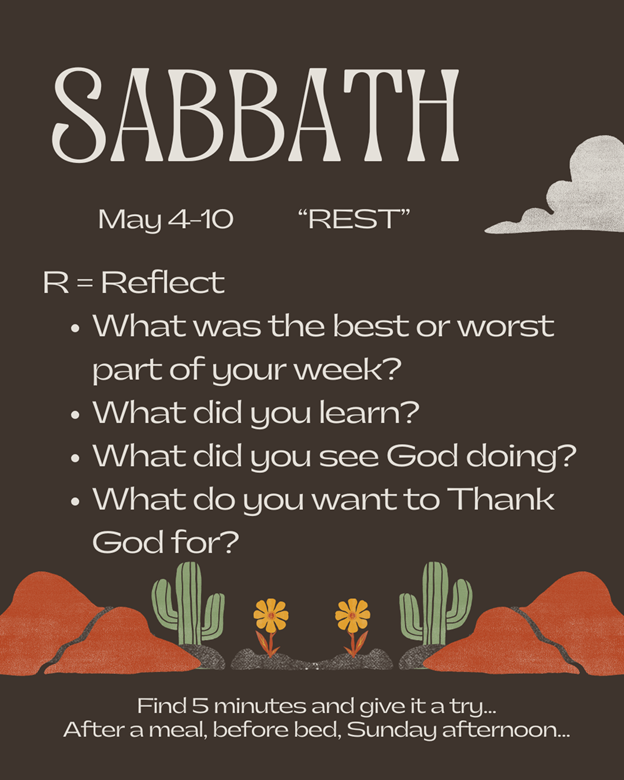
Sabbath: Rest
Take this week to reflect on rest! How did you rest with God this week? How will you rest?
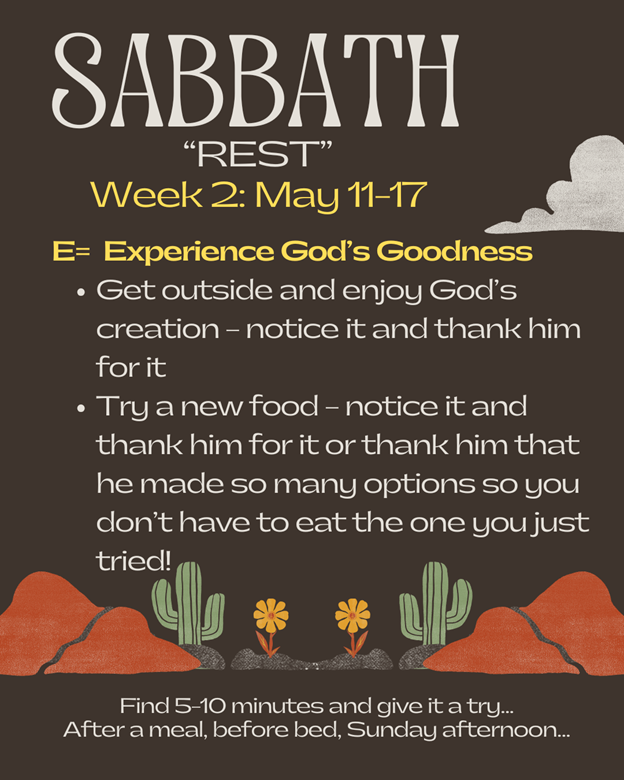
Sabbath: Experience
Experience God’s goodness this week! Where have you experienced great food and fun? How might God be moving in that experience?
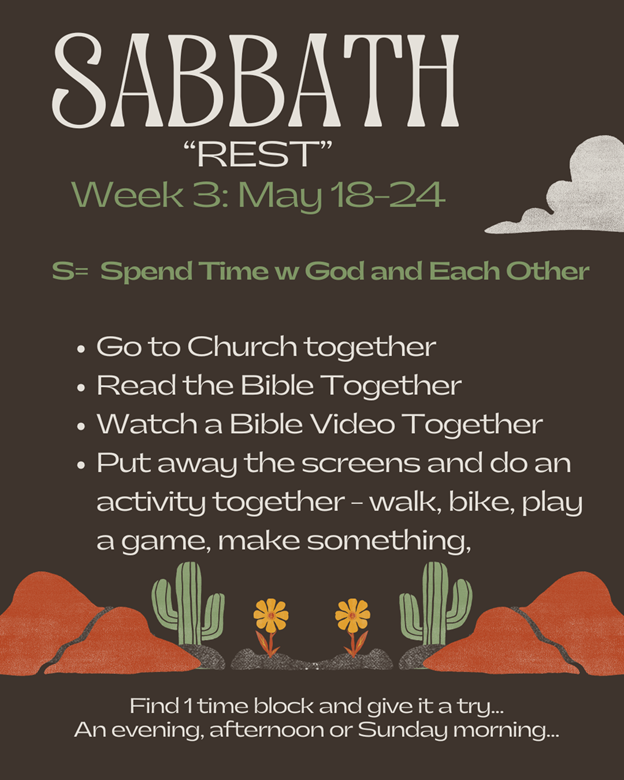
Sabbath: Spend Time with God and Each Other
Spending time with God and others is a hallmark of Sabbath! How can you spend time with God and others this week?
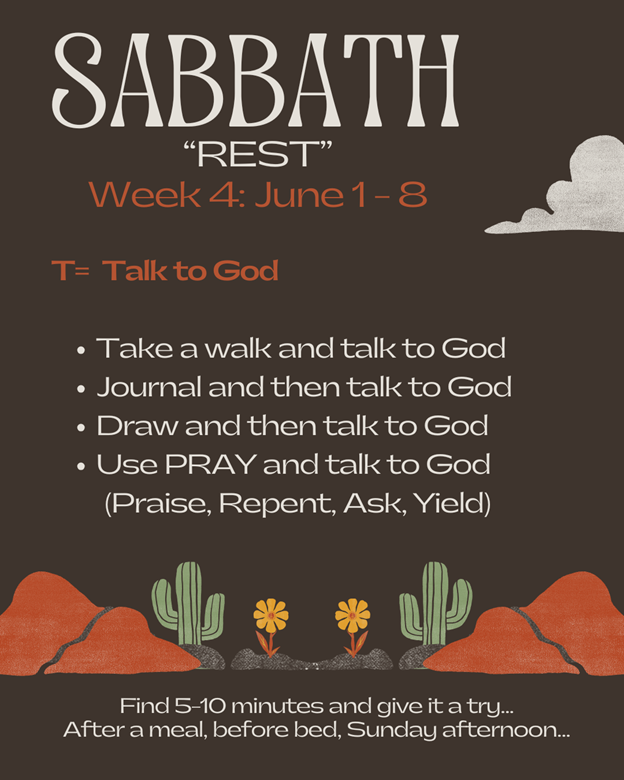
Sabbath: Talk to God
Talk to God wherever you are in your day! How did you talk to God this week? How can you talk with him today?
Beyond the Pulpit: Sabbath Resources
Here are four excellent resources on Sabbath recommended by our pastors!

Mark read The Rest of God: Restoring Your Soul Through Sabbath
The Sabbath is given to us by God for our own benefit: this is the idea repeated throughout this helpful book, written by author and pastor Mark Buchanan. The tone of the book is both reflective and practical, leading the reader into a good mindset with doable applications.
Through Scripture, Buchanan shows us all that Sabbath rest is intended to be.
For those of us who grew up with a rigid perspective on Sabbath, The Rest of God will help you walk away from the burden of religion and into genuine rest and restoration.
For those of us who are moved by frenzy and activity, Rest gives permission to slow down, stop, and trust God.
Drawing from Scripture, stories and personal experience, Buchanan reminds us that the Sabbath is God’s gift to us – drawing us to God while helping us establish a good rhythm of life.
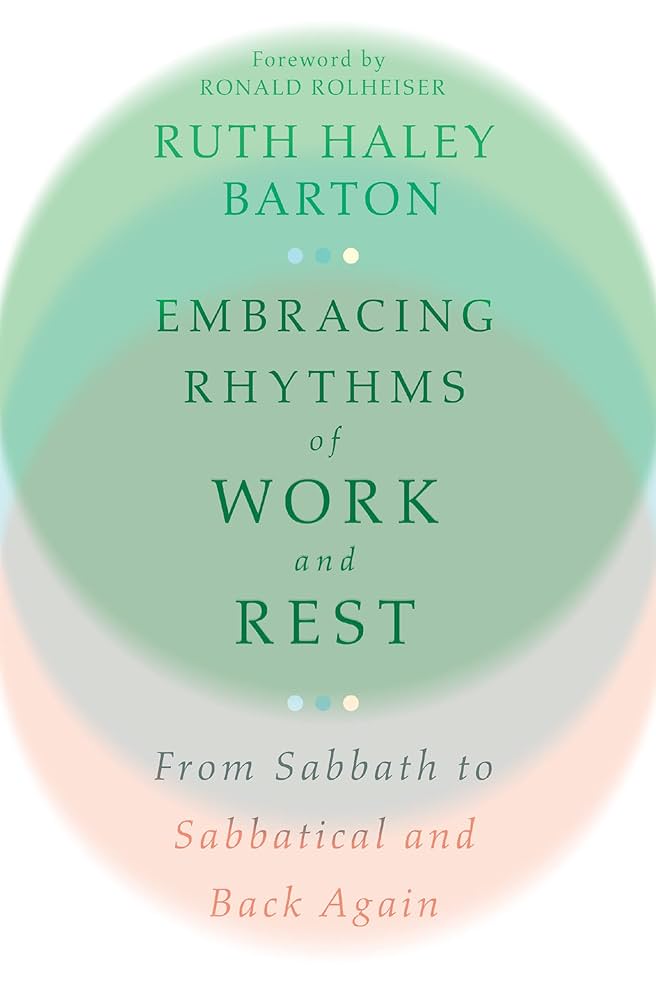
Katelyn read Embracing Rhythms of Work and Rest
Sabbath is first and foremost about the freedom to live our lives on God’s terms for us rather than living in bondage to anyone, anything, or any culture.
Ruth Haley Barton discusses the theology of Sabbath as rooted in Israel’s liberation from slavery. The Sabbath is not only for rest and replenishment, but also for resistance to the prevailing culture and the gods of that culture. Sabbath is a day to pledge allegiance to the God of Israel over and above the gods of Egypt and the surrounding nations.
When Sabbath is rooted in a strong theology of who God is and who we are as his redeemed people, it becomes a day to delight in our God. It is not a day for rules and legalism. Instead, it is meant to bring us back to our Creator in a whole relationship with him as we let go of our patterns of slavery. Our rhythms of work and rest place us in right relationship with our redeeming God as we worship him.
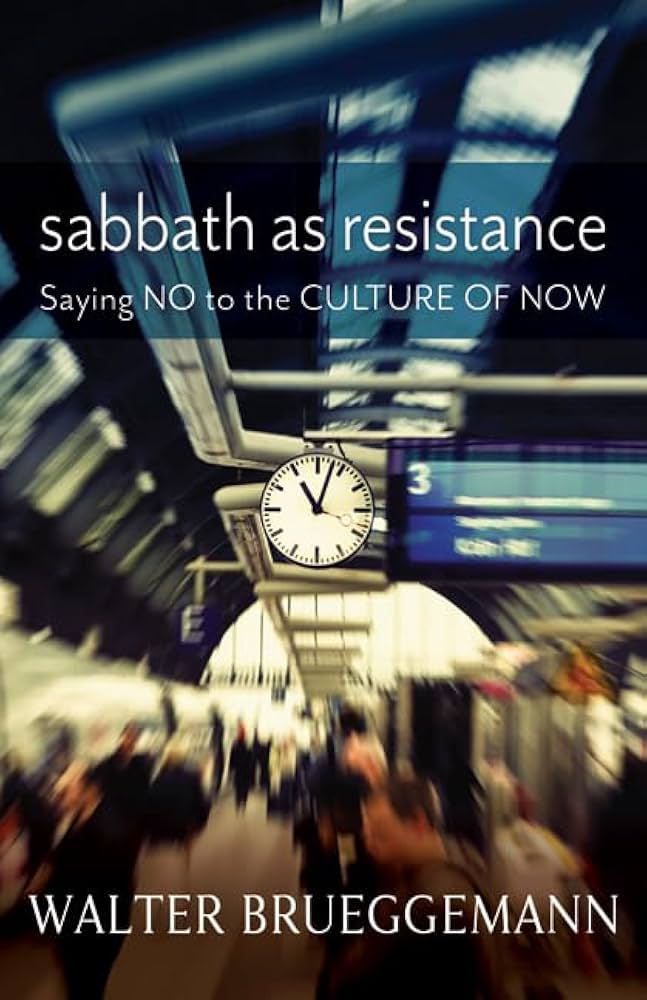
Troy read Sabbath as Resistance: Saying No to the Culture of Now
If the Sabbath was given to humanity by God as a response to the exhaustion and pressure of relentless life, then it is needed more desperately now than ever. In this book, Brueggemann shows how the Sabbath is so much more than sleeping in and playing games. It is a resistance to the fear of scarcity that drives us to consume and accumulate, to compete with each other, and to be productive to justify our worth. The weekly rhythm of Sabbath reclaims our humanity as a God-given identity, a deliberate disruption of the rat race of modern life, and makes space for human dignity, trust in God, rest, and community.

Keith read This Day: Sabbath Poems Collected and New
When I read Jayber Crow, I knew that Wendell Berry understood Sabbath better than I did. Berry’s understanding of Sabbath encompasses the spiritual discipline, but it also embraces the lesser-known aspects of Sabbath, including justice for those bound up by any form of oppression, the use of our time, creation care, stewardship of the land and people, worship, and a fine breeze wafting through an open window over the smell of church pews.
“In winter, when the windows were closed, the church seemed to admit the light strictly on its own terms, as if uneasy about the frank sunshine of this benighted world. In summer, when the sashes were raised, I watched with a great, eager pleasure the town and the fields beyond, the clouds, the trees, the movements of the air – but then the sermons would seem more improbable. I have always loved a window, especially an open one.”
Jayber Crow, chapter five.
In his book of Sabbath poems, despite his recognition as a writer more than a theologian, he again shows us his command of the topic. An excerpt from one of his poems shows his ability to be theological while still being creative and poetic.
“The mind that comes to rest is tended
In ways that it cannot intend:
Is borne, preserved, and comprehended
By what it cannot comprehend.
Your Sabbath, Lord, thus keeps us by
Your will, not ours. And it is fit
Our only choice should be to die
Into that rest, or out of it.”
1979, II
